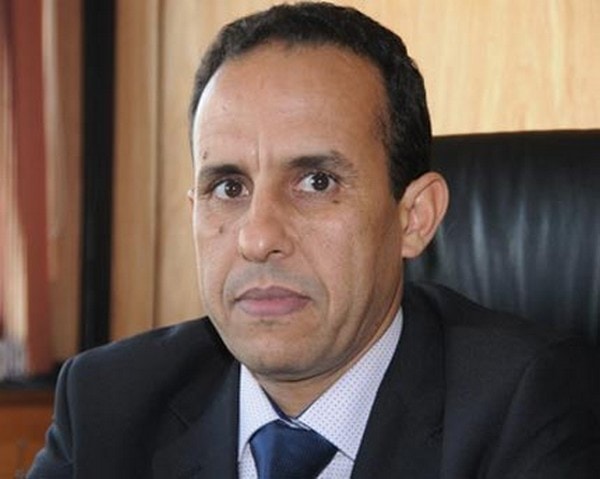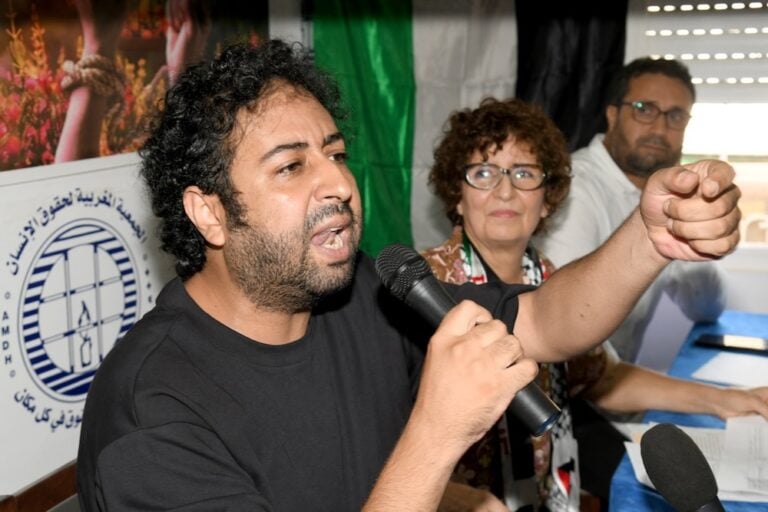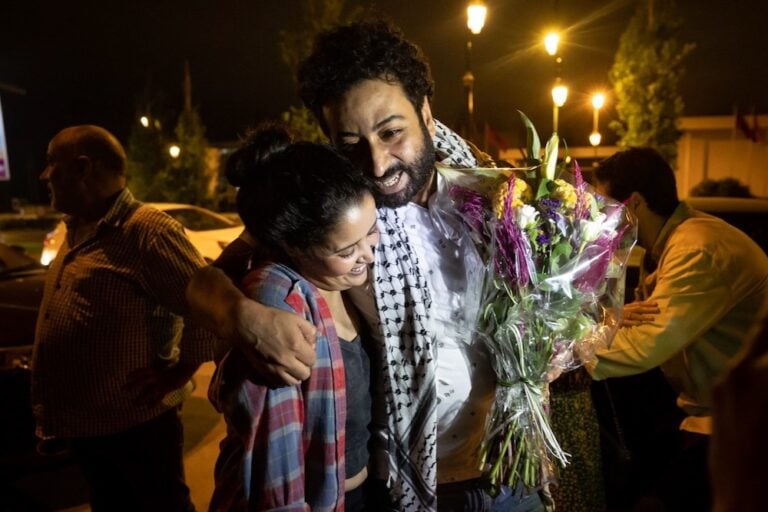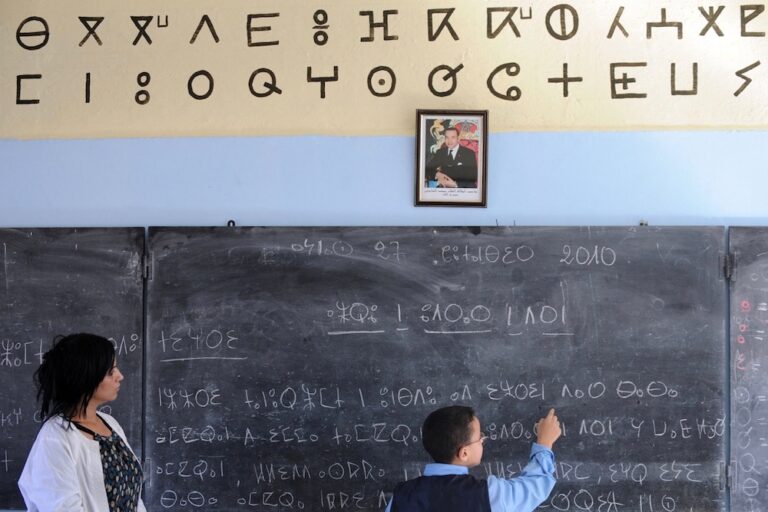Over 60 organisations signed a joint appeal to Moroccan authorities to free editor Ali Anouzla, jailed on 17 September for posting a link to an Al-Qaeda video on his news website alongside an article critical of the video.
The following is a letter signed by over 60 organisations, initiated by the Committee to Protect Journalists and International Media Support, calling on Moroccan authorities to free jailed editor Ali Anouzla:
Open appeal to the Moroccan authorities
Over 60 freedom of expression organisations call for immediate release of Moroccan editor Ali Anouzla
20 September 2013 – We, the undersigned press freedom and freedom of expression organisations call on the authorities in Morocco to immediately release Ali Anouzla, editor of the Arabic edition of the news website Lakome, who was arrested on 17 September 2013, in connection with an article published on his website.
According to information available to us, police arrested Ali Anouzla at his home and seized computers and hard drives from the journalist’s home and the offices of Lakome. We understand that the journalist is currently being held in Casablanca, pending charges.
Anouzla was arrested in connection with a 13 September news article published on the Arabic edition of Lakome, which included a link to a video posted on the website of the leading Spanish daily El País. The video, embedded from YouTube, allegedly sharply criticized King Mohammed VI of Morocco, accusing him of despotism and corruption, and called on Moroccan youth to engage in jihad. YouTube has since removed the video.
While Lakome’s article was critical of the video, on 17 September, Morocco’s general prosecutor stated that the video was “a clear invitation and a direct incitement to take part in acts of terrorism in the Moroccan kingdom” and that publishing threats from Al-Qaeda was a criminal action. He added that victims of terrorist attacks in Morocco had requested the authorities to initiate a judicial investigation into several newspapers that had reposted the video. However, Lakome did not post the video itself, but only a link to a website containing the video.
The Moroccan Ministry of Justice also reportedly said it would take legal action against El País.
The French edition of Lakome also published an article on the same day as the Arabic edition that included a direct link to the YouTube video, but its editor has reportedly not faced any official charges or harassment in connection with the article.
We are concerned that Ali Anouzla was singled out for linking to media content, which was already widely available through other sources, and that the Moroccan authorities may decide to prosecute him under the country’s sweeping anti-terrorism law, which has been criticised for failing to uphold international fair trial guarantees.
We also remind the Moroccan authorities that under international legal standards, restriction of the right to freedom of expression for reasons of national security, including under anti-terrorism legislation, must meet certain conditions known as the “three-part test” developed by the UN Human Rights Committee. National security cannot be used as a pretext for imposing vague or arbitrary limitations, such as in this case, and may only be invoked when there exists adequate safeguards and effective remedies against abuse. As highlighted in the Johannesburg Principles, developed in 1995 by a group of international experts, expression may be regarded as a threat to national security only if a government can demonstrate that the expression is intended to incite imminent violence; is likely to incite such violence; and that there is a direct and immediate connection between the expression and the likelihood or occurrence of such violence.
Lakome is well known for its extensive coverage of corruption and abuses within the Moroccan government since its establishment in 2010. Anouzla has been investigated multiple times by the Moroccan authorities in connection with the website’s coverage, most recently in June after he accused the Moroccan intelligence services of instigating a smear campaign against him.
We call on the Moroccan authorities to immediately release Ali Anouzla and allow the country’s media to participate in public debate on issues of great public concern to Morocco.
Sincerely,
Adala (Justice) Association, Morocco
Association de Recherche sur les Transitions Démocratiques (ARTD), Tunisia
Centre for Law and Democracy (CLD)
Centre de recherche sur l’opinion publique, les médias et la gouvernance locale (CRM), Tunisia
Citizens Assembly, Morocco
Comité pour le respcet des libertés et des droits de l’homme en Tunisie (CRLDHT)
Community Media Solutions
Free Press Unlimited
Front Line Defenders
Gulf Center for Human Rights (GCHR)
International Media Support (IMS)
Media Legal Defence Initiative (MLDI)
Moroccan Association for Human Rights
Moroccan Association for Investigative Journalism
National Syndicate of Tunisian Journalists
Nawaat.org
Regional Center for Training and Development of Civil Society, Sudan
Syndicat des journaux indépendants et partisans (SJIP), Tunisia
Syndicat général de la culture et l’information, Tunisia
Tunis Center for Press Freedom
Tunisian League to Defend Human Rights
Tunisian Association of Democratic Women
Tunisian Syndicate of Free Radio Stations
Union générale tunisienne du travail (UGTT)
Vigilance Association for Democracy and the Civic State



